Description
ABSTRACT
Arbitral Proceedings and Award Enforcement in Zhongshan Fucheng Industrial Investment Co Ltd v Nigeria – Revisited
Joshua U Olewu* & Arinze G Ezeagu**
Cross-border commerce, investor-state disputes, and diplomatic relations are intensifying in associative growth and spread across many jurisdictions. Dispute resolution and challenges associated with enforcing international arbitral awards become more pronounced, particularly when state-owned assets are involved. The Zhongshan Fucheng Industrial Investment Co. Ltd v the Federal Republic of Nigeria highlights the complexities surrounding enforcing arbitral awards against state parties. Amongst other matters arising from this case is navigating international law principles to find sovereign states responsible for internationally wrongful acts. This paper uses a doctrinal approach to analyse the Tribunals’ interpretations and applications of the key legal principles relevant to international investment arbitration. The research delves into the dialectics surrounding Nigeria’s resistance to enforcing the award and the need for adherence to international legal norms. The findings suggest that while Nigeria sought to protect its sovereignty, its stance poses significant implications for its credibility and reliability in international arbitration. The study concludes by emphasising the need for legal clarity and consistency in Nigeria’s commitment to upholding international arbitration agreements. This research contributes to the ongoing discourse on enforcing transnational arbitral awards and the evolving dynamics of international arbitration obligations.
Keywords: Sovereign Immunity; Bilateral Investment Treaty; Investment Arbitration; Arbitration Awards; Principle of Attribution; Asset Tracing.
INTRODUCTION
The fundamental framework governing the investment relations between nationals of a state (investor) and another state (Host state) is usually in the form of a Bilateral Investment Treaty (BIT) or a Multilateral Investment Treaty (MIT), arbitral award precedents, and customary international law.1 Investment disputes are inevitable; hence, most BITs incorporate Investor-State Dispute Settlement (ISDS) Clauses – prevalent amongst which is arbitration.2 Arbitration allows disputing parties to submit their disputes to an independent third party for determination and decision (via an…
* LL.B; Grad ICSAN; ACArb; BL (in view 2025 – Nigerian Law School).
**LL.B; BL; (LL.M Candidate, World Trade Institute Switzerland).
- H Mann, ‘International Investment Agreements, Business and Human Rights: Key Issues and
Opportunities’ (2008) International Institute for Sustainable Development p1; S Schll, ‘Sources of
International Investment Law: Multilateralization, Arbitral Precedent, Comparativism, Soft Law’
(2017) 16 ACIL Research Paper p1. - Y N Hodu, ‘Exploring the Legal Framework for International Investment’ in Eric De Brabandere and
Others, ‘Public Participation and Foreign Investment Law: From the Creation of Rights and
Obligations to the Settlement of Disputes’ (Brill, 2021).

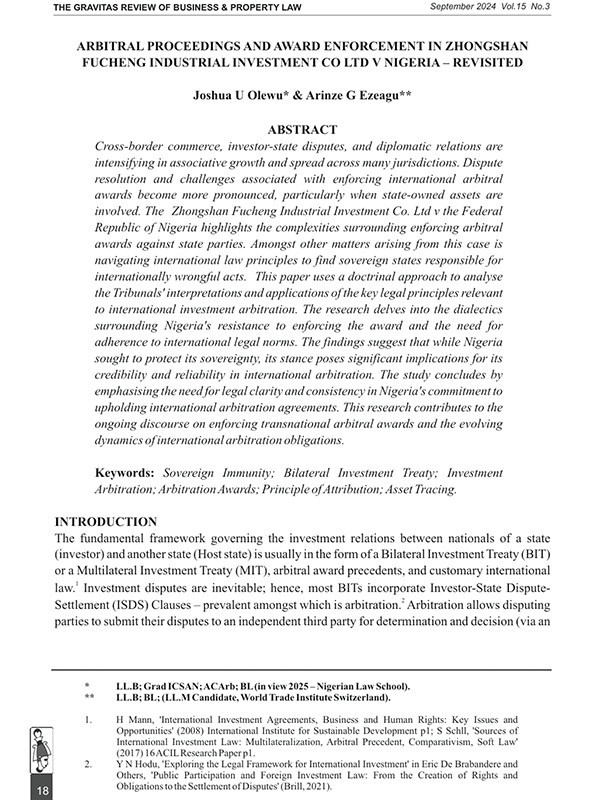
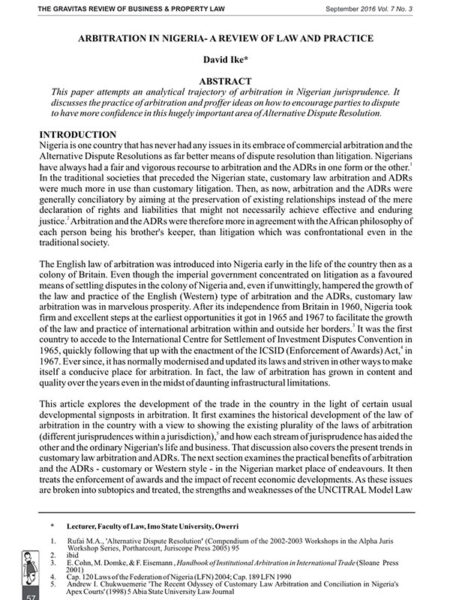
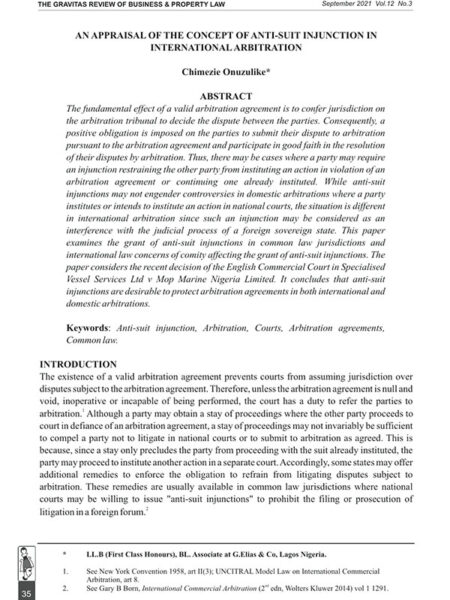
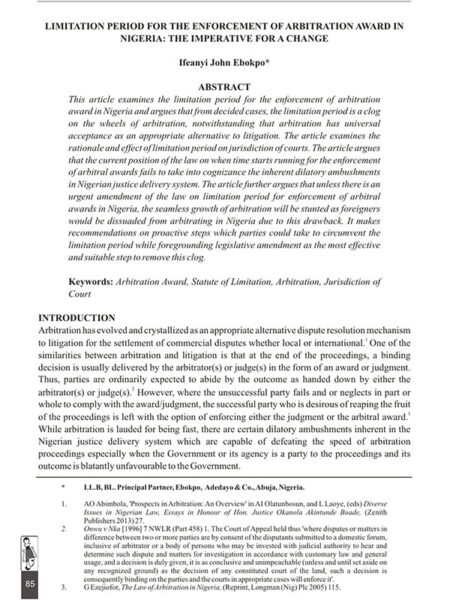
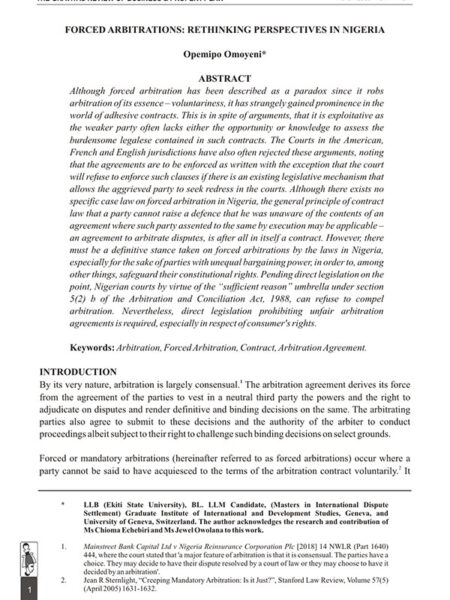


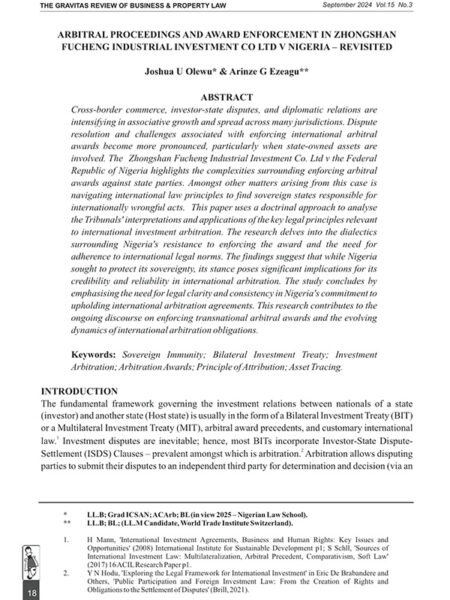
Reviews
There are no reviews yet.